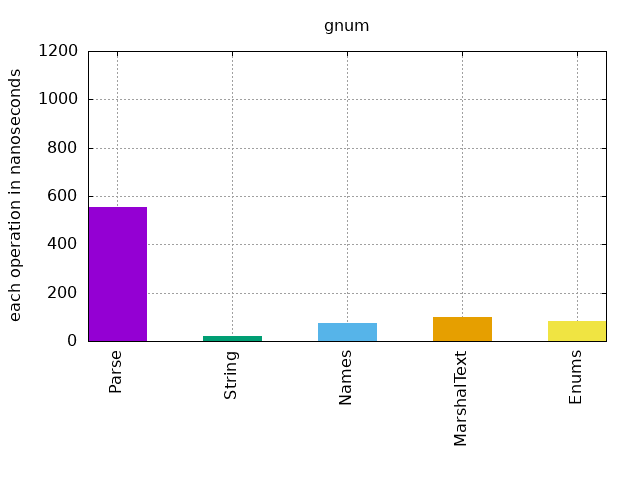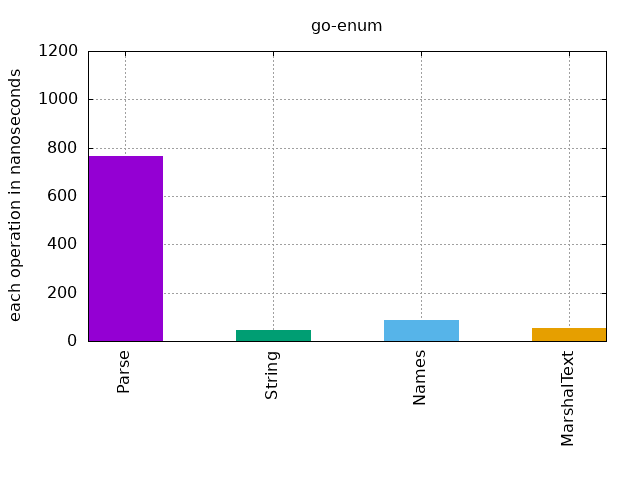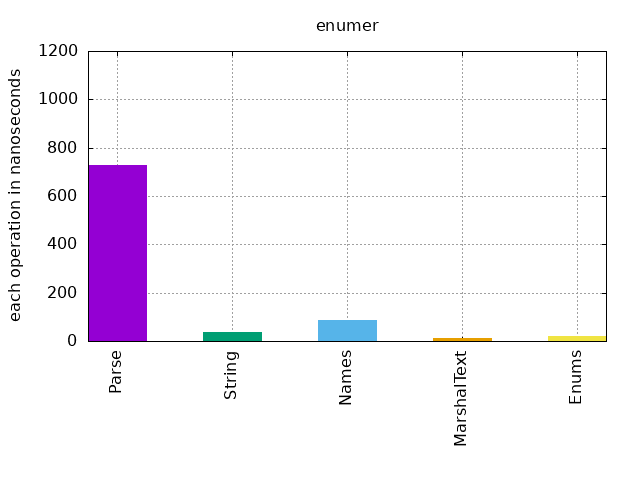- No code generation.
- Constant.
- Fast.
- Can be used as generic T.
- Concurrency safe.
go get github.com/joelboim/gnumFirst lets declare an enum type:
package enums
import "github.com/joelboim/gnum"
type (
Color = gnum.Enum[struct {
Red,
Blue,
Green color
}]
color int
)
const (
Red Color = iota
Blue
Green
)Now we can use it like other languages Enums:
func main() {
fmt.Println(Red, Blue, Green) // Red Blue Green
fmt.Println(gnum.Names[Color]()) // [Red Blue Green]
fmt.Println(fmt.Sprintf("%T", gnum.Enums[Color]())) // []gnum.Enum[struct { Red main.color; Blue main.color; Green main.color }]
_, err := gnum.Parse[Color]("red")
fmt.Println(err) // error
colorJson, _ := json.Marshal(struct{ Color Color }{Blue})
fmt.Println(string(colorJson)) // {"Color":"Blue"}
}Can be also used as generic type:
func foo[T gnum.Enumer[T]](enum T) {
fmt.Println(
enum.Names(),
enum.Type())
}
func main() {
foo(Red) // [dog cat cow] animal
foo(Square) // [Square] shape
}If you need to customize elements of the enum you can do it with tags:
type (
Color = gnum.Enum[struct {
Red color
Blue color `gnum:"value=3,name=b_l_u_e"`
Green color
Yellow color
}]
color int
)





